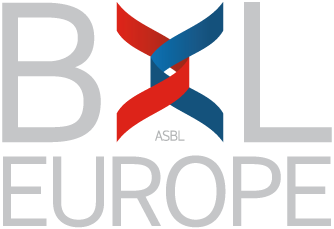PRESENTAtion
Background and justification
The idea is to create a new training curriculum: the Project Manager of the Integrated Reporting, was inspired by a need rules represented by the Directive 2014/95 / EU which applies only to large enterprises but is an important step in raising awareness of sustainability also for small and medium enterprises, and nonprofit organizations.
This directive is an important step towards the recognition of the concept of sustainability for companies, concerning the large enterprises but increasingly also involves small and medium-sized enterprises. In particular, among these is spreading good practice to accompany the economic balance with a social report, that is a separate document that gives a clear view on the commitment of the company towards sustainability.
The PMIR will also move towards small-medium enterprises, nonprofit agencies and organizations that want to create a Sustainability Report.
However, the birth of this professional is not only a regulatory requirements but an answer a various requests from a company that is increasingly attentive to the choices and the dynamics that create value; by the same companies and organizations they are increasingly aware of the theme Sustainability faced as opportunities for the Integrated Thinking.
The PMIR is the new profession that can accompany the organization along a course of sustainability that points to the competitive advantage.
This process allows to identify strategic, economic, environmental and social objectives, can be monitored through the choice of specific Key Performance Indicators.
The new practice and new profession, enables organizations to go beyond traditional financial reporting, focusing on intangible assets, acquiring an ever greater awareness of risk factors, opportunities and outcomes that affect capabilities that the organization has to create value in the medium-long time.
Objectives
This project aims to create a European curriculum in the labour market: the Project Manager of the Integrated Reporting.
The Project Manager of the Integrated Annual Reporting coordinates all the necessary activities for the compilation of Integrated financial statements, providing a clear representation of the economic and social performance and added value of the company (such as relationships the company has with its stakeholders (eg. Employees, customers and suppliers)).
Therefore, this project aims to create a cross-linking role between the different business areas, a figure able to coordinate and implement the preparation of a complex document that tells the company from a multiplicity of viewpoints.
This figure will have to possess skills in business administration, in order to be able to interpret and evaluate a company’s financial statements. Furthermore training will transfer management, project management, interpersonal and communication skills, as well as information and statistics ones.
Target group:
Direct:
– Graduates in economics or engineering (in particular management engineering).
– Professionals, such as business consultants and accountants.
– Employees who want to learn new skills and grow within the company.
Indirect:
– Every type of small, medium and large companies. Public and private organizations, banks and insurance companies, third sector.
Project’s phases [3 years]:
I Year:
– Needs analysis Report;
– Didactis platform;
II Year:
– Identification of the matrix of learning outcomes: Matrix of Project Manager of the Integrated Report
III Year:
– Pilot testing and participants’ motility;
– MOOC;
– Integrated Report Indicators Database
Benefits / impact:
– Benefits for participants and partners;
– Benefits for enterprises’ internationalisation; any type of small, medium and large enterprises, profit and non-profit organizations, banks and insurance companies;
– Benefits for graduates and professionals in the integrated reporting and sustainability
Sustainability:
Our partners are linked to learning VET and vocational training, social inclusion of disadvantaged groups, employment policies and ICT: they represent different institutional missions and will be important to support the project needs of direct and indirect target groups, as well as the multipliers effects. They will involve public institutions at local, regional and national activities for the dissemination and follow-up of the project through long-term relationships, which will lead to the signing of the memorandum in support of the European network.
It will also be ensured by the University:
- Professional training for corporate employees and graduates
- MOOC: it will be supported by the University
The project is built upon a methodology of international management, which can be transferred to other projects and countries.
Through project outputs it will be possible to create a basis of knowledge, experience sharing, continuous learning.

